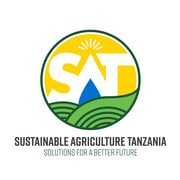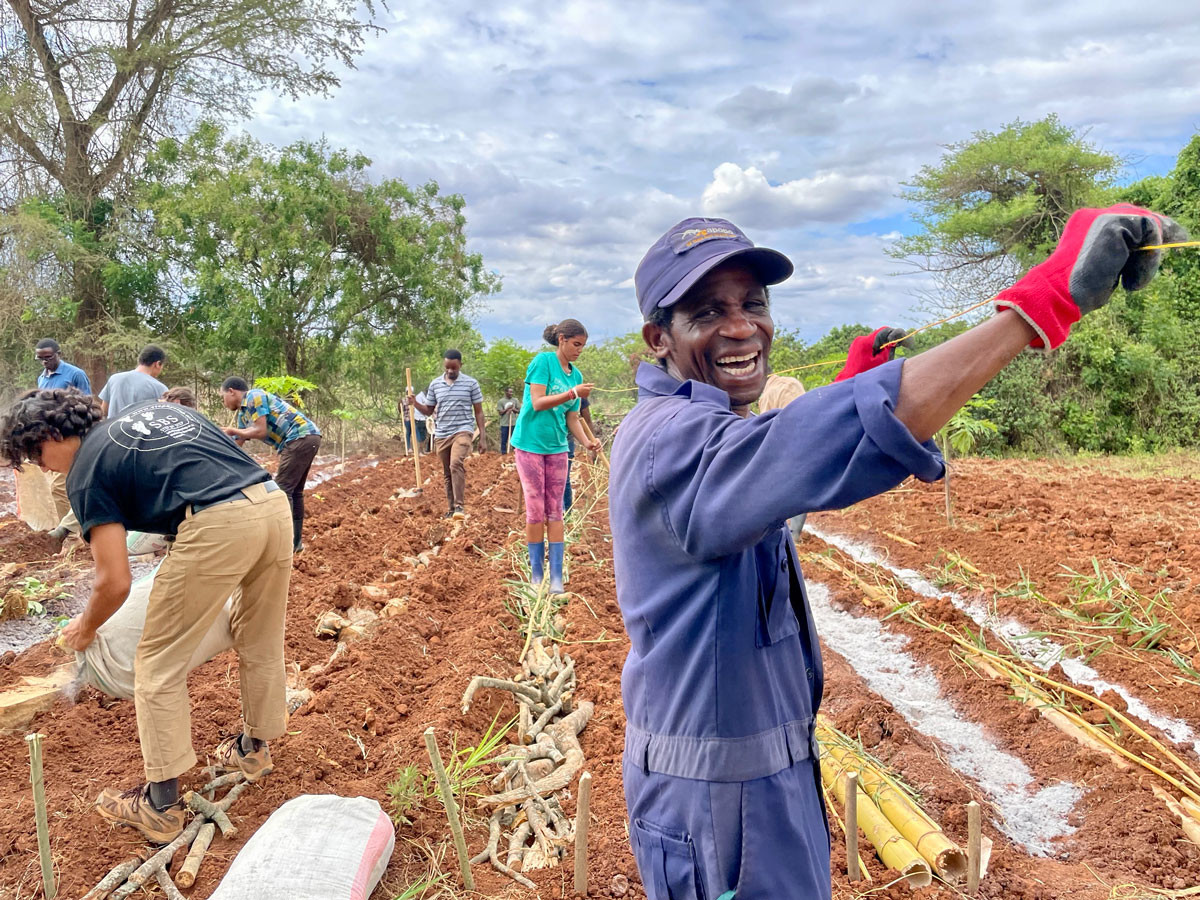
3-day course in Tanzania in partnership with SAT
This past weekend, APOPO organized the first-ever course in Syntropic Farming in Tanzania, from the 3rd to the 5th of December 2021. This initiative is part of the APOPO HeroTREEs project, and carried out in partnership with Sustainable Agriculture Tanzania. The course was a combination of theory classes and practical experience with mostly hands-on experience under the guidance of Permaculture and Syntropic Farming expert Roland van Reenen, who has led numerous similar workshops in other East African countries and the Dutch Caribbean island of Curaçao.
What is Syntropic Farming?
Syntropic Agroforestry is an ancient, indigenous agriculture technology that combines reforestation with the abundant production of food. Syntropic farming is a system which can finance tree planting through combined vegetable production in successional harvests with the growing of fruit, biomass, and timber trees and guarantees the highest yields and survival of trees per square meter whilst restoring ecosystems. Syntropic farming is based on five main principles: full soil coverage creating a moist and cool microclimate, maximizing photosynthesis, creating more biomass, stratification by planning the vertical spaces in different strata, restoring the ecological succession processes and management of the design.
The course was attended by 30 varied participants: students from Sokoine University of Agriculture, staff of Sustainable Agriculture Tanzania, representatives from NGOs such as Ecowice, Step by Step SBS and Ils de Paix, as well as staff and friends of APOPO.
We established 13 one meter wide beds of 18 meters long, with every fifth bed being a tree bed, interspaced with 2 grass/biomass beds and one vegetable bed. In this area of 230 square meters, we planted 24 banana trees, 4 avocado trees, 4 soursop trees, 2 clove trees, 36 coffee trees, 36 cacao trees, 18 citrus trees, 4 jackfruit trees, over 30 nitrogen fixing trees, 4 timber trees, 4 cinammon trees, 72 papaya trees, 2 pomegranate trees and 12 coconut trees. In addition we planted 25 cardamon plants, 36 arrowroots, 72 pineapples, interspersed with ginger, turmeric, tomatoes, maize, kale, amaranth, beans, groundnuts, okra, pepper, cucumber, pumpkin, watermelons and lots of grass for biomass.
We hope this initiative will spark the interest in Syntropic Farming in Tanzania, increasing food security, facilitating ecological restoration, and boosting our HeroTREEs program. We thank all participants for their keen interest and hard work, Sustainable Agriculture Tanzania for facilitating the event and inviting our excellent coach Mr. Roland van Reenen. We are mostly looking forward to seeing our new food jungle thrive and expand!
HOW YOU CAN TAKE ACTION:
Support the HeroTREEs project by donating to APOPO on GlobalGiving
Follow us on social media to get news on our projects
Take personal action with Good Life Goals



